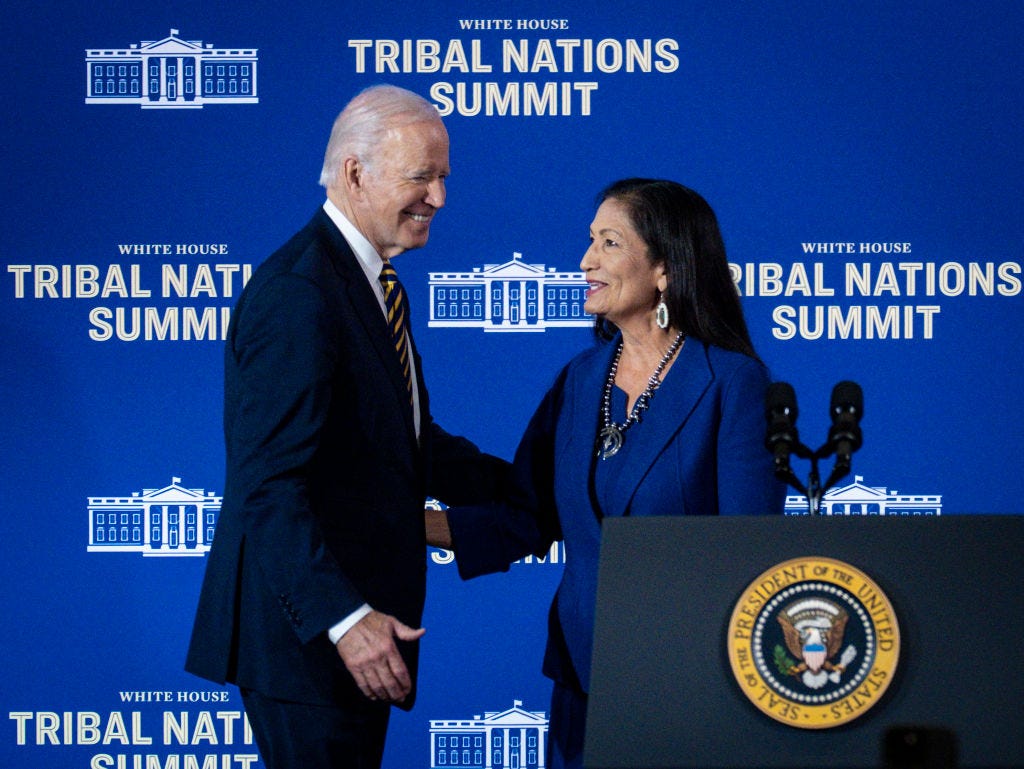Biden's full remarks at White House Tribal Nations Summit 2022
'I'm telling you, I hear more about the Navajos than I hear about me.'

WASHINGTON — Full transcript follows of President Joe Biden’s approximately 15-minute speech this morning at the…
Keep reading with a 7-day free trial
Subscribe to Indigenous Wire to keep reading this post and get 7 days of free access to the full post archives.


